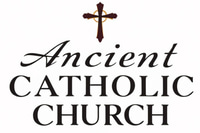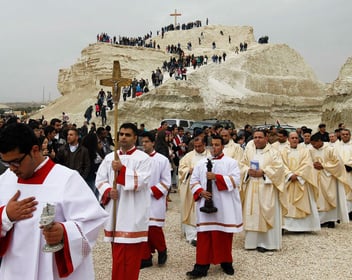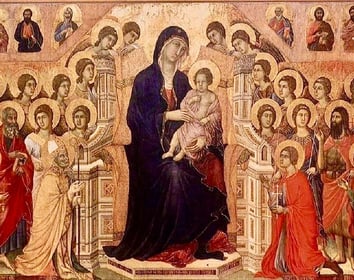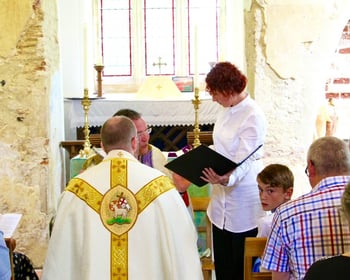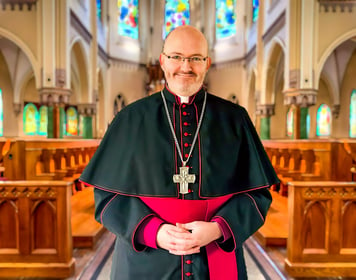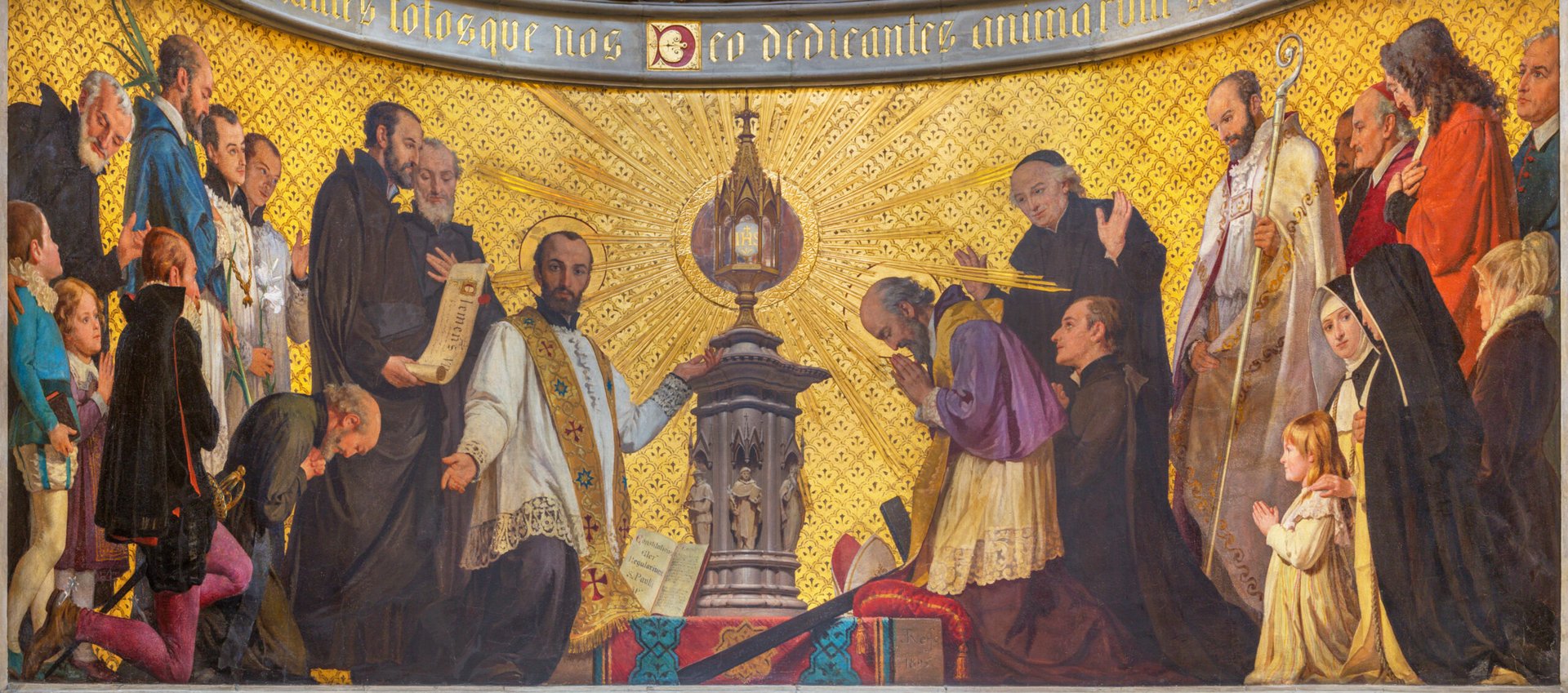
Commitment to Apostolic Tradition
We invite you to discover, belong, and journey with us in faith. Welcome home to the Ancient Catholic Church—where tradition meets mission, and community flourishes.
Governance
The Ancient Catholic Church (ACC) operates under a structured and inclusive governance model that reflects its commitment to apostolic tradition, pastoral care, and community engagement.
Below is an outline of its governance framework:
The Church maintains valid apostolic succession, ensuring that its clergy are ordained within the unbroken lineage of Christ’s apostles. This foundational principle guarantees the legitimacy of its sacraments and teachings.
The ACC embraces a synodal approach to governance, emphasising collaboration and shared decision-making. Synods or councils are convened to discuss theological, pastoral, and administrative matters. These gatherings foster unity and ensure that the voices of clergy and laity are heard.
The ACC ordains both men and women to the priesthood, reflecting its belief in the equality of all vocations. This inclusive approach is central to its mission of serving diverse communities.
Each parish operates as a vital part of the Church’s governance, with priests and lay leaders working together to address local needs. Parish councils often play a role in decision-making, ensuring that the Church remains responsive to its members.
The ACC oversees the St. Thomas Aquinas Seminary, its online seminary program. Governance includes: Ensuring academic excellence in theological education. Supporting seminarians through mentorship and pastoral formation. Promoting the vocational apprenticeship model, where seminarians gain practical experience in parish life.
The ACC prioritises the protection of vulnerable individuals. Safeguarding policies are implemented at all levels of governance, with dedicated officers ensuring compliance and accountability.
The ACC actively engages in dialogue with other Christian denominations, fostering unity and collaboration. Its governance includes representatives who participate in ecumenical initiatives and interfaith discussions.
The ACC operates under a set of canonical laws that guide its governance, liturgical practices, and pastoral care. These laws are rooted in the Roman Ritual (Rituale Romanum) and Missal, ensuring fidelity to Catholic tradition. This governance model reflects the Ancient Catholic Church’s commitment to tradition, inclusivity, and service.


Pontiff
The Pontiff of the Ancient Catholic Church holds a pivotal role that interweaves spiritual leadership, historical preservation, and ecclesiastical authority. Rooted in the early Christian traditions, the Pontiff serves as the principal representative of the Church, guiding its faithful in the pursuit of spiritual growth and adherence to the teachings of the Apostles.
One of the primary responsibilities of the Pontiff is to ensure doctrinal purity. By interpreting sacred texts and providing theological guidance, the Pontiff safeguards the Church’s teachings against contemporary influences that may stray from established beliefs. This role is crucial in maintaining the integrity and continuity of the faith throughout generations.
Furthermore, the Pontiff oversees the administration of sacraments, rituals, and liturgical practices, ensuring that they resonate with the Church's ancient traditions while also addressing the spiritual needs of its community. The Pontiff also plays a diplomatic role, fostering relationships with other Christian denominations and faiths, promoting unity, and advocating for peace and social justice.
Archbishops
The Archbishops of the Ancient Catholic Church hold a significant position within the ecclesiastical hierarchy, serving as both a spiritual leader and a guardian of tradition. This esteemed role is characterised by a commitment to uphold the doctrines and practices that have defined the church since its inception.
Primarily, the Archbishop is responsible for the governance of the church’s regional or national communities, ensuring that its teachings align with the Ancient Catholic faith. This includes overseeing liturgical practices, pastoral care, and the administration of sacraments, thereby fostering a deep sense of spiritual communion among the faithful.
In addition to administrative duties, the Archbishop acts as a mediator between the church and broader society. This involves engaging in dialogue with other religious entities and participating in ecumenical efforts to promote understanding and cooperation. The Archbishop also advocates for social justice and ethical issues, reflecting the church's commitment to serve both its members and the wider community.
Moreover, the Archbishop plays a pivotal role in educating clergy and lay members alike, providing theological guidance and support. Through sermons, teachings, and various outreach initiatives, the Archbishop nurtures the spiritual growth of the faithful.
The Archbishop of the Ancient Catholic Church is a vital figure whose responsibilities encompass spiritual leadership, governance, community engagement, and education, all while maintaining fidelity to the church’s rich ecclesiastical heritage.
The Cardinals of the Ancient Catholic Church play a pivotal role in the governance and spiritual leadership of the church, serving as senior representatives who bridge the historical traditions of the church with its contemporary mission. Rooted in the early Christian community, Cardinals are entrusted with various responsibilities, including the pastoral care of their congregations, administrative duties, and the safeguarding of doctrinal integrity.
One of their primary functions is to participate in the Synod, where critical decisions regarding church policies, theological direction, and social outreach initiatives are made. This collaborative decision-making process ensures that the voices of diverse congregational leaders are heard, fostering unity while respecting regional differences.
Additionally, Cardinals serve as custodians of the church's sacred traditions, overseeing the sacraments, liturgical practices, and the promotion of spiritual education. They are also instrumental in ecumenical dialogues, working towards fostering relationships with other Christian denominations, thereby enhancing unity among the broader Christian community.
The Cardinals of the Ancient Catholic Church are not just administrative figures; they are spiritual shepherds and guardians of the faith, dedicated to nurturing a vibrant and engaged church that remains true to its apostolic roots while addressing the needs of modern society. Their commitment to service, leadership, and tradition helps to guide the church through the complexities of contemporary life while honouring its rich heritage.
Cardinals
Bishops
The Bishop holds a crucial role within the Ancient Catholic Church, serving as both a spiritual leader and a cornerstone of the faith community. Rooted in early Christian traditions, the Bishop is tasked with upholding the doctrines, practices, and moral teachings of the Church. This responsibility reflects a commitment to the continuity of apostolic succession, ensuring that the teachings and authority of the original apostles are preserved and transmitted through generations.
Central to the Bishop's duties is the oversight of parish clergy, guiding their spiritual development and ensuring adherence to Church doctrine. This includes the ordination of new clergy, which is a significant act that reinforces the Bishop’s role as a spiritual father and teacher within the community. The Bishop also plays a vital role in administering the sacraments, including baptism and confirmation, thereby facilitating the spiritual growth of the congregation.
Moreover, the Bishop participates in broader ecclesiastical governance, collaborating with other bishops in councils and synods to address theological and administrative matters. This collective leadership is essential for maintaining doctrinal integrity and fostering unity within the Church.
The role of the Bishop in the Ancient Catholic Church is complex, encompassing pastoral care, sacramental administration, and ecclesiastical governance. Through these functions, the Bishop nurtures the spiritual health of the Church, ensuring that it remains a vibrant and faithful witness to the teachings of Christ.
Council of Bishops
The Council of Bishops of the Ancient Catholic Church plays a crucial role in preserving and guiding the spiritual and administrative aspects of the church. Comprised of bishops from various dioceses, this council is tasked with the responsibility of overseeing doctrine, liturgy, and ecclesiastical discipline, ensuring adherence to the tenets of faith that have been upheld since the church's inception.
One of the primary functions of the Council is to provide theological guidance and promote unity among the church's members. It serves as a platform for dialogue, allowing bishops to discuss contemporary issues affecting the church and its congregants, thus adapting to the changing societal landscape while remaining rooted in tradition.
Additionally, the Council of Bishops is responsible for the ordination of new bishops and the establishment of policies concerning church governance. This oversight is essential for maintaining the integrity of the church's mission and ensuring that leadership aligns with its values.
In times of crisis or theological disputes, the Council acts as a mediator to resolve conflicts, fostering a spirit of reconciliation and collaboration. Ultimately, the Council of Bishops serves as a vital link between the church's historical heritage and its future, guiding the Ancient Catholic Church in its mission to spread the message of faith and love throughout the world.

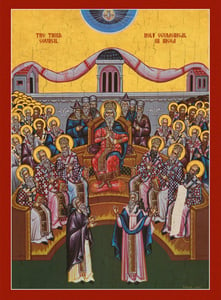
Parish Priest
The Parish Priest plays a vital role in the Ancient Catholic Church, serving as a spiritual leader and a bridge between the congregation and the divine. This position carries historical significance, rooted in the traditions of early Christianity, where the priest is seen as a shepherd guiding their flock.
The primary responsibility of the Parish Priest is to oversee the spiritual well-being of their parishioners. This involves conducting divine services, administering sacraments, and providing pastoral care. The priest serves as a shepherd, offering guidance and support to individuals and families during significant life events such as births, weddings, and funerals.
Additionally, the Parish Priest is tasked with maintaining the doctrinal integrity of the church, ensuring that teachings align with the apostolic traditions. Through preaching, education, and catechesis, the priest helps in nurturing the faith of the congregation and fostering a deeper understanding of Christian principles.
The Parish Priest also plays an essential role in community outreach, engaging with local needs and extending the church’s mission beyond its walls. By fostering a sense of community and encouraging acts of charity, the priest embodies the teachings of Christ, promoting love, compassion, and service among parishioners.
The Parish Priest in the Ancient Catholic Church is not only a spiritual leader but also a vital community figure, committed to preserving traditions while adapting to the ever-evolving needs of their congregation.
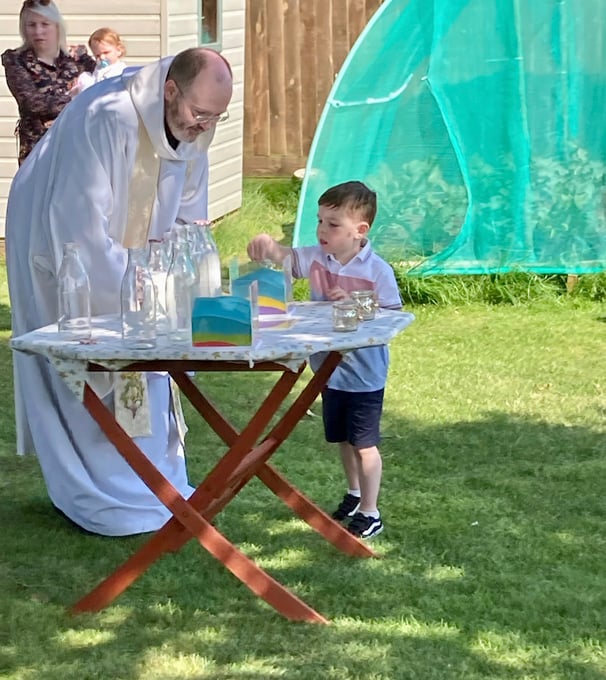

Apostolic Succession
Apostolic succession is a fundamental tenet of the Ancient Catholic Church, underpinning its authority and continuity through history. This doctrine asserts that the bishops of the Church are direct successors of the apostles, possessing an unbroken spiritual lineage that traces back to Christ's original disciples.
The significance of apostolic succession lies not only in maintaining the integrity of the Church's teachings but also in safeguarding the sacraments as means of grace. By ordaining new bishops through this lineage, the Church ensures that the unaltered faith, practices, and teachings of Christ are preserved and transmitted from one generation to the next. This succession provides a visible connection to the apostolic foundation, reinforcing the Church's claim to spiritual authority.
Moreover, apostolic succession is essential for ecclesiastical unity; it affirms that local churches are part of a greater universal Church, united through a common heritage of faith. In a time when various interpretations of Christian doctrine emerged, the Ancient Catholic Church’s commitment to this succession served as a bulwark against heresy and division.
Apostolic succession acts as a vital link between past and present, providing legitimacy, unity, and continuity in the Ancient Catholic Church, thus allowing it to fulfil its mission of evangelisation and sacramental life amidst the challenges of an ever-changing world.
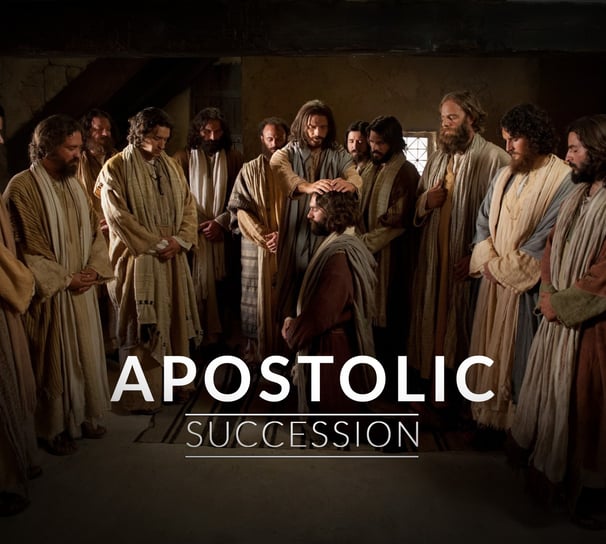

Synodical Governance
Synodical governance serves as a foundational pillar in the structure and functioning of the Ancient Catholic Church. Rooted in the early Christian tradition, synodical governance embodies a collective decision-making process where bishops and church leaders convene to discuss theological issues, pastoral care, and the direction of the church. This assembly approach fosters unity, accountability, and shared responsibility, reflecting the communal aspect of early Christian life as emphasized in scripture.
In the modern context, synodical governance remains integral to the church’s ethos. Contemporary synods, often comprised of clergy and lay representatives, continue to address pertinent issues such as social justice, interfaith dialogue, and the role of the church in an evolving society. By promoting collaboration among diverse church members, modern synodal practices enhance democratic participation, allowing congregations to voice their concerns and aspirations.
Moreover, synodical governance has adapted to embrace new technologies and communication methods, enabling virtual gatherings that transcend geographical barriers. This flexibility ensures that the church remains responsive to contemporary challenges while preserving its historical roots. Ultimately, synodical governance not only reinforces the communal identity of the church but also serves as a guiding framework for decision-making, affirming the relevance of the Ancient Catholic Church in today’s dynamic cultural landscape.


Inclusivity in Ordination
Inclusivity has always been a fundamental principle within the Ancient Catholic Church, originating from the early Christian belief in the inherent value of all individuals, regardless of gender or background. This perspective not only shaped the theological framework of the church but also laid the groundwork for the ordination process.
In its ancient context, the Church recognised the diverse gifts of all believers. Women played vital roles in the early Christian communities, serving not only as patrons and educators but also, in some instances, as deacons and leaders. This early model fosters an understanding that ordination should reflect the communal nature of the church and embrace the unique contributions of both genders.
In modern times, the Ancient Catholic Church seeks to uphold this foundational principle of equality by actively promoting the participation of women in all vocations.
The contemporary church is committed to fostering an environment where both men and women can fully express their vocations, ensuring that their potential is recognised and celebrated. This commitment not only enriches the church community but also aligns with the core Christian values of love, respect, and equality. In doing so, the Ancient Catholic Church continues to honour its legacy while adapting to the needs of a diverse and dynamic world.
Community Engagement
The Ancient Catholic Church, with roots extending back to the earliest Christian communities, has long recognised the integral role of parish and community engagement. In its modern context, this engagement remains pivotal, enabling each parish to function as a vital component of the Church’s governance.
Parishes serve not merely as places of worship but as dynamic hubs where priests and lay leaders collaborate to address the diverse needs of their communities. This collaborative model enhances the Church's responsiveness, allowing it to adapt to the unique challenges faced by its members. By fostering an environment of open dialogue and shared decision-making, parish councils empower both clergy and laity to actively participate in shaping the direction of church initiatives and policies.
The involvement of parish councils in decision-making processes ensures that the Church remains attuned to its congregants' spiritual and social needs. These councils play an essential role in community outreach, charity efforts, and educational programs, reinforcing the Church’s mission to serve humanity.
The partnership between parish and community engagement is not only a reflection of the Ancient Catholic Church’s historical commitment to its members but also a necessary mechanism that allows the Church to thrive and maintain its relevance in the modern world. Through active participation and collaboration, the Church exemplifies its foundational belief in unity and collective responsibility.
Education Oversight
Rooted in a venerable liturgical and spiritual heritage, the Ancient Catholic Church calls its candidates to a journey of deep personal transformation and dedicated ministry. Recognising that true formation arises not only in the classroom and chapel but also in the lived experience of ministry, the ACC employs a training apprenticeship model. In this “on the job” approach, seminarian candidates actively participate in the daily life of parish ministry, serving alongside experienced clergy and mentors.
This policy sets forth the guidelines, expectations, and structures for spiritual formation as candidates discern and prepare for a lifelong vocation to serve as deacons or priests. This Spiritual Formation Policy affirms the ACC’s commitment to preparing candidates for the permanent diaconate and priesthood through a balanced fusion of ancient tradition and practical apprenticeship.
Financial Framework
The early Church provides a rich tapestry of financial stewardship that offers valuable lessons for today's Christian communities. By grounding our practices in scripture and the historical context of the apostolic era, we can cultivate a spirit of generosity and accountability that honours God and supports the mission of the Church. In reflecting upon the faithful management of resources, we are challenged to see our financial practices not just as a matter of administration but as a vital expression of our faith and commitment to God’s kingdom.
The principles of financial stewardship laid out in the Ancient Catholic Church continue to resonate in the modern context. As the Church advances in a rapidly changing world, embracing these timeless principles will strengthen its witness and enhance its mission to serve humanity in Christ's name.
The canonical framework of the Ancient Apostolic Church emerged during the early formative years of Christianity and established the basis for ecclesiastical order and doctrinal integrity. Rooted in apostolic teaching and deeply connected to the ministry of the original disciples, this system combined scriptural authority with evolving traditions to guide community belief and practice. Early church leaders, chiefly bishops recognised as successors of the apostles, took on the responsibility of upholding orthodoxy, administering sacraments, leading liturgical rites, and offering pastoral care. Working in concert with presbyters and deacons, they created a collegial leadership structure that promoted unity, accountability, and shared decision-making.
Rather than being a fully codified legal system, the canonical framework developed gradually through local consensus, regional synods, and early ecumenical councils, which deliberated on theological disputes and practical matters of worship and discipline. Foundational texts—including scriptural writings and apostolic letters—served as enduring references for moral conduct and ecclesiastical organisation. This evolving system balanced the weight of tradition with the everyday needs of a growing community, emphasizing both spiritual devotion and practical governance.
Canonical Framework
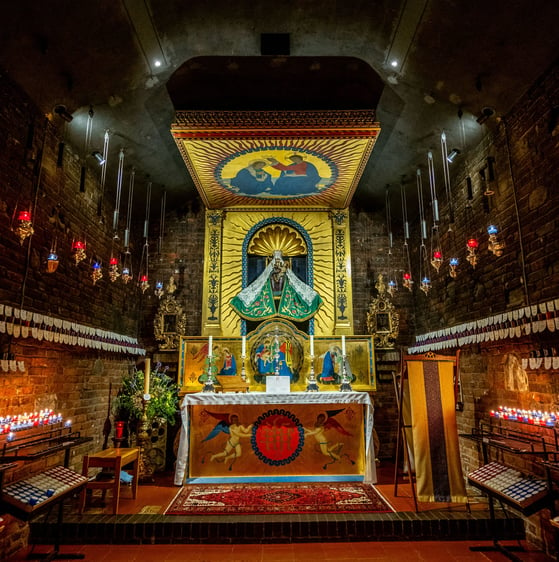

About the Ancient Catholic Church
Fostering faith, inclusion, and compassionate service within a vibrant community and beyond.
Who Are We?
The Ancient Catholic Church is a community that proudly carries forward the rich heritage of the Roman Catholic tradition while embracing a spirit of inclusivity and family.
Governance
The ACC operates under a structured and inclusive governance model that reflects its commitment to apostolic tradition, pastoral care, and community engagement.
Archbishop Felix Gibbins is the spiritual leader and Primus of the Ancient Catholic Archdiocese of the United Kingdom, and the seventh successor of St Felix of Dunwich.
Meet Archbishop Felix
Safeguarding Policy
Data Protection Policy
Spiritual Formation Policy
Our safeguarding policy reflects the Church’s mission to be a safe haven for all, especially children, young people, and vulnerable adults.
Dedicated to protecting the privacy and personal data of its clergy, seminarians, staff, parishioners, and associated parties in accordance with (UK GDPR).
The policy is intended to nurture a deep, authentic relationship with God and to prepare candidates for a lifetime of service steeped in the wisdom of the Church Fathers/
Ancient Catholic Church
Embracing faith, inclusion, and compassionate service together.
ST THOMAS AQUINAS SEMINARY
© 2025. All rights reserved.
QUICK LINKS
